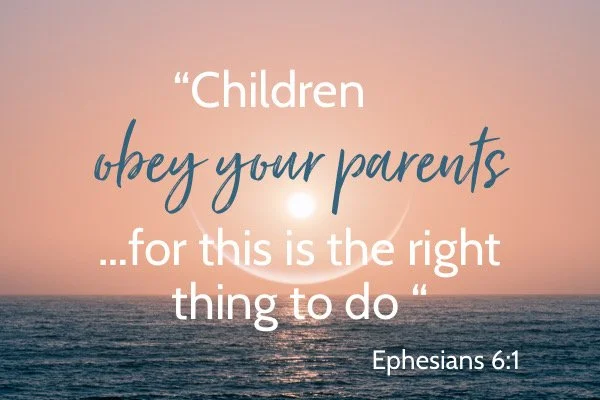How Do You Know When Your Child Needs to Be Disciplined?
A mom having a moment with her daughter sharing why she needs to obey. Photography by Guille Pozzi
At times it can be confusing to know if you should discipline your child or ignore their actions. Sometimes you wonder if it is worth the effort when you are in a hurry and late for work, people are watching, or you are just too exhausted.
As moms, we encounter disobedience issues daily. Picture this scenario: it’s time to get ready for bed. “Samantha, please go brush your teeth and get your pajamas on.” Five minutes later, Samantha is still laying in the same spot on the floor. Mom thinks, “This happens every night! I wish she’d get up and do what I say!”
Or perhaps you recognize this common morning interaction: “Ryan, get your coat on, we are ready to leave for school.” A few minutes later, you turn around to see Ryan walking out the door without his coat despite the heavy snowfall outside. You think, “Why can’t he just do what I ask!?”
Another common issue could be getting your child to eat their food at mealtime – a struggle you encounter at least three times a day.
The first step in evaluating potential discipline for your child is learning self-control of our own emotions. “A person without self-control is like a city with broken down walls.” Proverbs 25:28
Before deciding to tackle any of these issues with your child, you should pause and evaluate your heart to make sure you are not responding out of selfishness, anxiety, or anger. This may be the case if you are having thoughts such as:
· “That makes me mad!”
· “I’m too tired to deal with this!”
· “I’m just trying to get everyone out the door.”
· “I’m embarrassed by my child’s actions at the grocery store.”
· “My feelings are hurt that my daughter isn’t listening.”
· “I wish she’d do what I say!”
We’ve all had these thoughts, and many of us have probably verbalized them. But thoughts like these make our child’s obedience about our feelings – a subtle, yet important, distinction. When we think or say statements using me, my, or I, it’s a hint that our hearts are focused on ourselves and tainted with self-interest. When we are thinking about ourselves, we can’t accurately think about what is best for our child. We need to stop and release our self-oriented thoughts before moving forward. Our latest blog post, How to Control Your Emotions When Your Child Frustrates You, can help you learn to let go of those self-oriented viewpoints to the Lord so that you can have clarity in parenting and disciplining your children.
This verse has so many lifelong benefits for your children and your family relationships. It also means moms must handle our children fairly and with love and kindness. “Children obey your parents...for this is the right thing to do.” Ephesians 6:1
When we parent for our children’s benefit rather than ours, not only is our home more peaceful, but it also puts them in a position before God to receive His promises. When they choose to honor and obey you, their life will be blessed. In other words, the way we parent either helps or hinders our children’s relationship with the Lord.
The Bible says children are to obey their parents. So, let’s be the kind of parent worthy of our child’s obedience. This can only happen when our own selfishness, anxiety, and anger are gone, and we think clearly about the best response. With an open heart, you will know which issues need to be addressed to help your children obey, grow, and become all they were created to be. When they choose to obey you, a seen authority, for the right reasons, they will have a much easier time learning to obey the Lord, who they can’t see.
As one of the “Ten Commandments”, children honoring their parents with obedience comes with a promise of blessing. “Honor your Father and Mother. This is the first commandment with a promise.” Ephesians 6:2
Anytime self-centeredness, anxiety, or anger is present, our child can’t learn the lesson we are trying to teach. Instead, what they learn is to obey because they’re afraid of “Mom’s moods”. If we don’t approach them with the right heart attitude, they will have an inner resistance to learning from you, which can make obedience sporadic and honoring you hard.
When you’ve released your emotions, your heart has given up the right to have your self-oriented response be the focus. At this point, you can calmly address your child’s disobedience, connecting with them and teach them to obey with a good attitude.
Here’s a guide to help discern if your child needs discipline:
Stop and ask yourself, “Are my selfish emotions dealt with?” If not, release them to the Lord and make sure you now have a peaceful calmness.
Does my child understand what I’m asking, and did they hear me? I remember a time my son ignored me, and I asked in a quieter voice, “Can you hear me, or do we need to get your hearing checked?” He quickly responded, so I knew he could hear me. When you know they understand and can hear you, continue.
Are they making a deliberate choice to disobey? Have boundaries been set around this issue before? If not, calmly explain that it is their job is to listen and obey, then set good boundaries around the issue for the future. If they are deliberately disobeying, you need to calmly follow through with the consequences you previously set.
Ask yourself, “If this behavior continues, what will it look like in 10 years?” This can help discern if we want to allow behaviors to continue. For example, if your:
o three-year-old tells you “NO,” what kinds of things will a thirteen-year-old say when you tell them not to drink?
o four-year-old ignores you and walks away when you ask them to do something, what will a fourteen-year-old walk away and do?
o five-year-old child is lying about what they’re up to, will your fifteen-year-old lie about where they’re going at night?
Behaviors accepted when they are young become habit, and they carry into the teen years and beyond. Deliberate disobedience, deceitfulness, and lying become particularly damaging. The older a child gets, the more destructive these habits become in their lives and on their faith, causing broken families, lost jobs, and destroyed relationships.
By taking a moment to get rid of your own self-interest before responding to your child’s disobedience, you will see rewards now and far into the future. What a blessing it will be to watch your grown children in turn be blessed by God in their relationships, jobs, and families.



